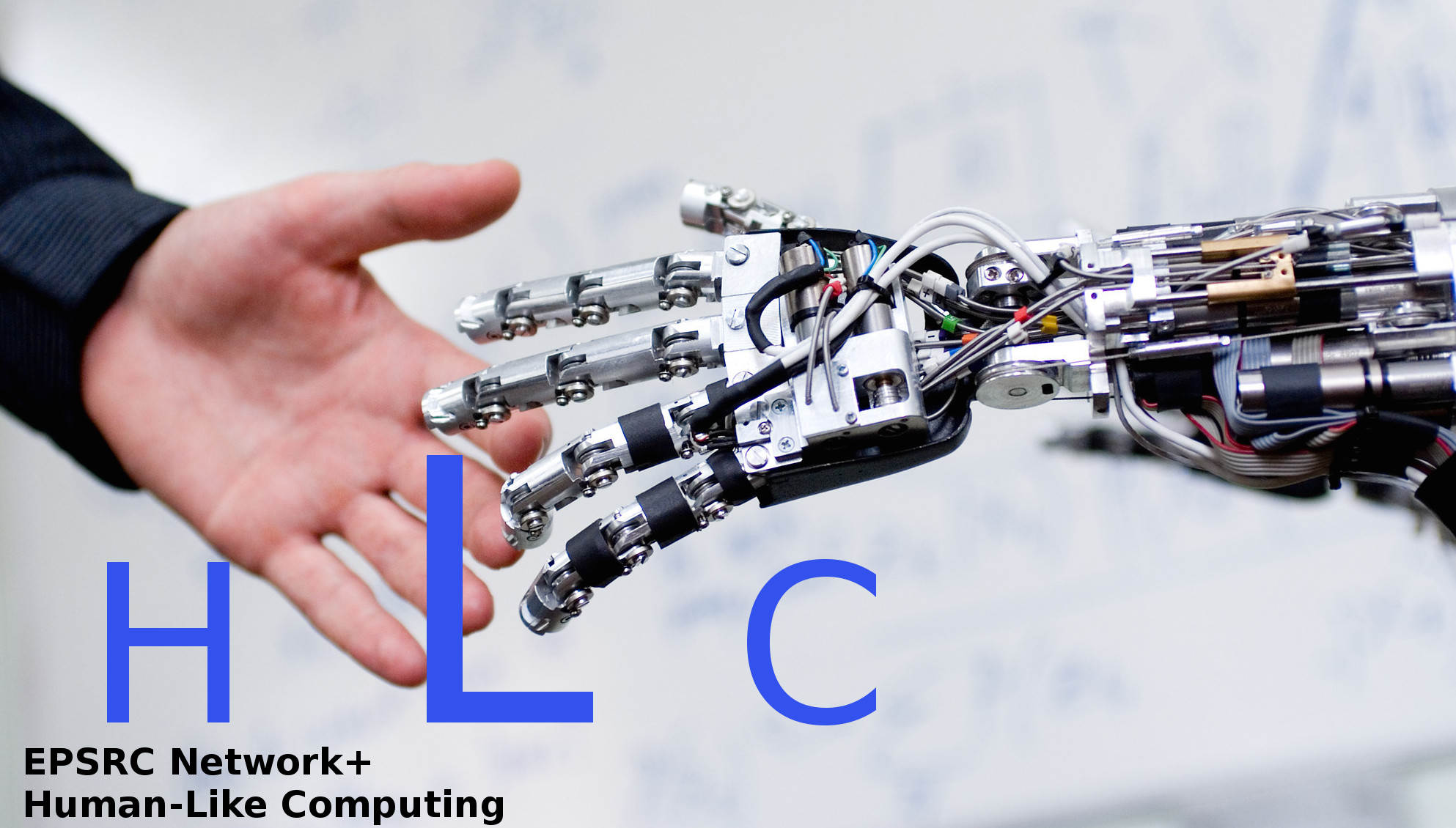Human-Like
Computing Third Wave of AI Workshop (3AI-HLC 2019)
As part of the EPSRC funded Human-Like Computing Network+ we
are organising a workshop on Third Wave Artificial Intelligence
on Friday 26th April 2019 from 09:30 17:00.
Third wave AI is DARPA's term for its upcoming programme of
research in areas which go beyond the limitations of first wave
AI and second wave.
First Wave AI (1970s 1990s) is defined as good at reasoning,
but no ability to learn or generalize. Second Wave AI (2000s to
present) is defined as good at learning and perceiving, but
minimal ability to reason or generalize.
Third Wave AI (est 2020s 2030s) is envisaged as consisting of
excellent at perceiving, learning and reasoning, and able to
generalize with the following attributes:
Contextual adaptation, able to explain
decisions.
Can converse in natural language.
Requires far fewer data samples for
training.
Able to learn and function with minimal
supervision.
The purpose of the EPSRC funded Human-Like Computing Network+ is
to support the development of a UK-wide multi-disciplinary
community of researchers within the EPSRC Priority area of
Human-Like Computing (HLC). The main stakeholders in our project
are: other researchers within both Artificial Intelligence and
Cognitive Science both nationally and internationally. See
our website (hlc.doc.ic.ac.uk) for further details.
Participation
This workshop is meant as an opportunity to exchange ideas and
present recent work on an important and timely topic in AI. We
welcome presentations by experienced as well as early
researchers. We encourage two types of presentations:
short (10 minutes) and long (20 minutes). You can also express
your interest to participate without presenting by submitting a
short description of your research (see below).
To attend and give a presentation, please submit viaEasyChair.For long presentations: a short description of consolidated (e.g. published) work - please include a link to a publication if applicable;For short presentations: a short description (max 1 page) of ongoing work.To attend without presenting, please submit a short description (max 1page) of your research interests and previous (relevant) research, also viaEasyChair.The deadline for submissions is 5th April 2019. Notifications will be sent by 15th April 2019.Your submission on EasyChair will be taken as your intention to attend. We will notify you by 15th April 2019 to advise you whether you submission (for attendance/presentation) has been successful. Participation in the workshop is free, subject to availability.
Online registration is now closed, please contact Bridget Gundry (bridget.gundry@imperial.ac.uk) if you want to register for the workshop after the closing date.
Programme
Friday 26th
April 2019 Huxley Lecture Theatre 308, Imperial College
London
| Session 1 |
Invited Talks - Chair: Prof Alan
Bundy |
|
09:30 09:45 |
Welcome &
Introduction |
|
09:45 10:20 |
|
|
10:20 11:00 |
|
|
11:00 11:20 |
Coffee break / poster session (Room 217/218)
|
|
11:20 12:00 |
Prof
Ute Schmid, Cognitive System Group, University of
Bamberg, "Cooperative Learning with Mutual Explanations" |
|
12:00 12:40 |
|
|
12:40 13:30 |
Lunch / poster session (Room 217/218)
|
|
13:30
14:00 |
Prof Murray Shanahan,
Google DeepMind, "Reconciling Deep Learning with
Symbolic AI" |
|
14:00 14:40 |
|
| Session 2 |
Long Presentations - Chair: Prof Stephen
Muggleton |
|
14:40 15:00 |
Jingqing Zhang
and Piyawat Lertvittayakumjorn and Yike Guo,
Department of Computing, Imperial College London,
"Integrating Semantic Knowledge to Tackle Zero-shot
Text Classification" |
|
15:00 15:20 |
Mark Law, Alessandra Russo and Krysia
Broda, Department of Computing, Imperial College London, "Inductive Learning of Answer Set Programs" |
|
15:20 15:40 |
Coffee break / poster session (Room 217/218)
|
|
15:40 16:00 |
Michael Zbyszynski, Atau Tanaka and Balandino Di Donato, Goldsmiths, University of London, "Real-time, interactive machine learning in musical performance"
|
|
16:00 16:20 |
Artur dAvila Garcez, Department of Computer Science, City, University of London, "Neural-Symbolic Systems for Software Model Evolution, Run-Time Monitoring and Property Learning"
|
| Session 3 | Short Presentations - Chair: Prof Artur dAvila Garcez |
|
16:20 16:30 |
Lewis Hammond
and Vaishak Belle
|
|
16:30 16:40 |
C้line Hocquette
and Stephen Muggleton, |
| 16:40 16:50 | Piyawat Lertvittayakumjorn and Francesca
Toni, Department of Computing, Imperial College London, "Interpreting CNNs for Text Classification" |
| 16:50 17:00 | Stassa Patsantzis, Department of Computing,
Imperial College London, "Metasplain - Assigning
meaningful names to invented predicates" |
|
17:00 17:10 |
Discussion/Closing Remarks |
